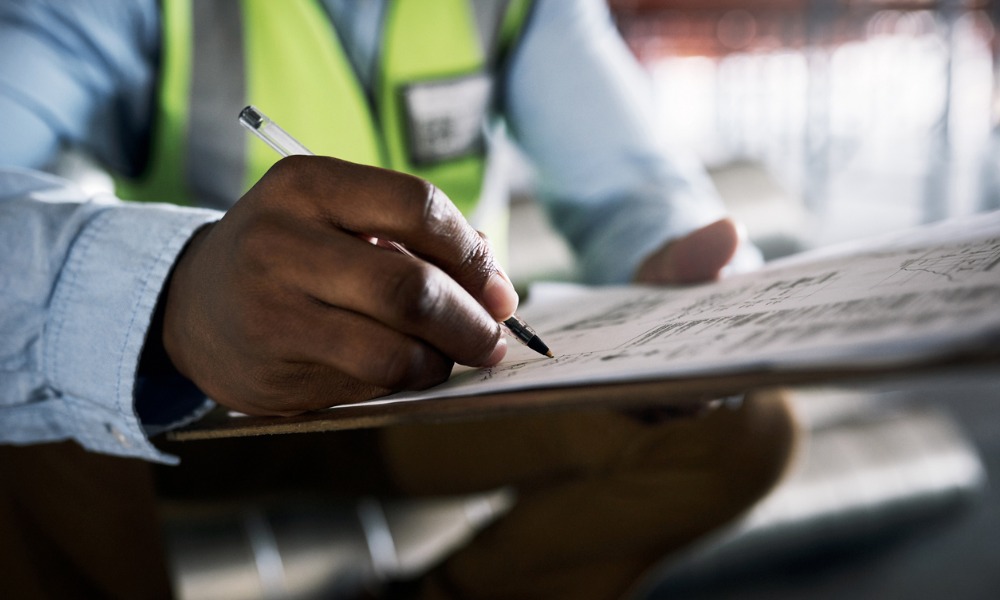How should construction contractors approach surety bonds?

How should construction contractors approach surety bonds? | Insurance Business America
Construction & Engineering
How should construction contractors approach surety bonds?
NFP expert on the risks to look out for
Construction & Engineering
By
Kenneth Araullo
In the realm of construction, surety providers play a critical role in ensuring that contractors meet their obligations. Deanna Brewer, senior vice president of NFP Construction and Infrastructure Group, Surety, outlines key aspects that sureties scrutinize in construction contracts and offers guidance on addressing potential concerns.
“In simple terms, a surety bond is an agreement among three parties. Typically, these parties are the surety company (guarantor), the contractor (principal) and the project owner (obligee). The project owner may be a private business or a public entity such as a government or a crown corporation,” she said.
Brewer highlighted that there are three primary types of contract surety bond; the bid bond, which ensures a bid is submitted in good faith, the contractor intends to enter the contract at the bid price, and the contractor will provide necessary performance and payment bonds.
“The performance bond assures that the contractor will perform the construction contract as specified. If the contractor fails to meet the obligations of the contract, the surety company will see that the work is completed,” Brewer said.
The labor and material payment bond, on the other hand, ensures the contractor will pay specified subcontractors, laborers, and suppliers.
“The surety provider assures the project owner that the contractor will perform a contract by completing specified work to a specified standard. Terms can also include assuring that the contractor adheres to specific regulations or will pay certain laborers, subcontractors and suppliers associated with the project,” Brewer said.
Should a contractor fail to meet these obligations, the surety company ensures project completion, she added. This assurance is based on the surety’s assessment of the contractor’s history, financial strength, and other factors.
Scope and limits for surety bonds
For projects within a contractor’s typical work scope and limits, and with familiar owners, sureties might not require a thorough review of contract terms. However, for larger or atypical projects, or when working with new private owners, sureties often demand a comprehensive review of the contractual terms, including any supplementary conditions.
Brewer explains that this review is crucial because if the contractor defaults — either by not performing the work as specified or becoming insolvent — the surety assumes the contract’s risks.
“Therefore, understanding the contractor’s risk tolerances in the contract performance, as well as the project performance, provides the surety with additional trust and confidence in the contractor’s ability to perform the contract without any significant issues and minimizes or eliminates any possible contract default (bond default). However, should there be a default, the surety is fully prepared and understands the contractual risks under the construction contract between the owner and the defaulting contractor,” she said.
An experienced surety broker is essential throughout this process, Brewer added, in that they can assist the contractor in identifying major contractual risk areas the surety will review and help in preparing a robust submission.
“By having your surety broker partner working with you during the early stages of the project pursuit and help in reviewing the project and its anticipated contract requirements, the surety broker can aid you in providing a more robust submission with the proper information needed to help the surety understand the project/contract risk and the contractor’s risk mitigation approach,” Brewer said.
Risk mitigation for surety bonds
Despite the surety broker’s expertise, contractors should involve their legal team in the contract review process. Legal teams provide an in-depth understanding of the contractor’s risk tolerances and ensure a proper legal review of the contract.
“Your experienced surety broker can help you understand which risk areas may be of more concern to the surety for each project requiring contract bond security so you, as the contractor, can provide additional insights on your contract risk mitigation approach and help you build a more robust submission for the broker to send to the surety for bond support,” Brewer said.
Understanding the contractual risk profile early can also influence a contractor’s decision on whether to pursue a project. Key contractual risk areas that sureties focus on include performance specifications, payment terms, and default clauses.
“Through your combined efforts, you can reduce the time spent on surety contractual questions and ensure you have minimal impact on your bids that require contract bonds,” she said.
What are your thoughts on this story? Please feel free to share your comments below.
Related Stories
Keep up with the latest news and events
Join our mailing list, it’s free!






